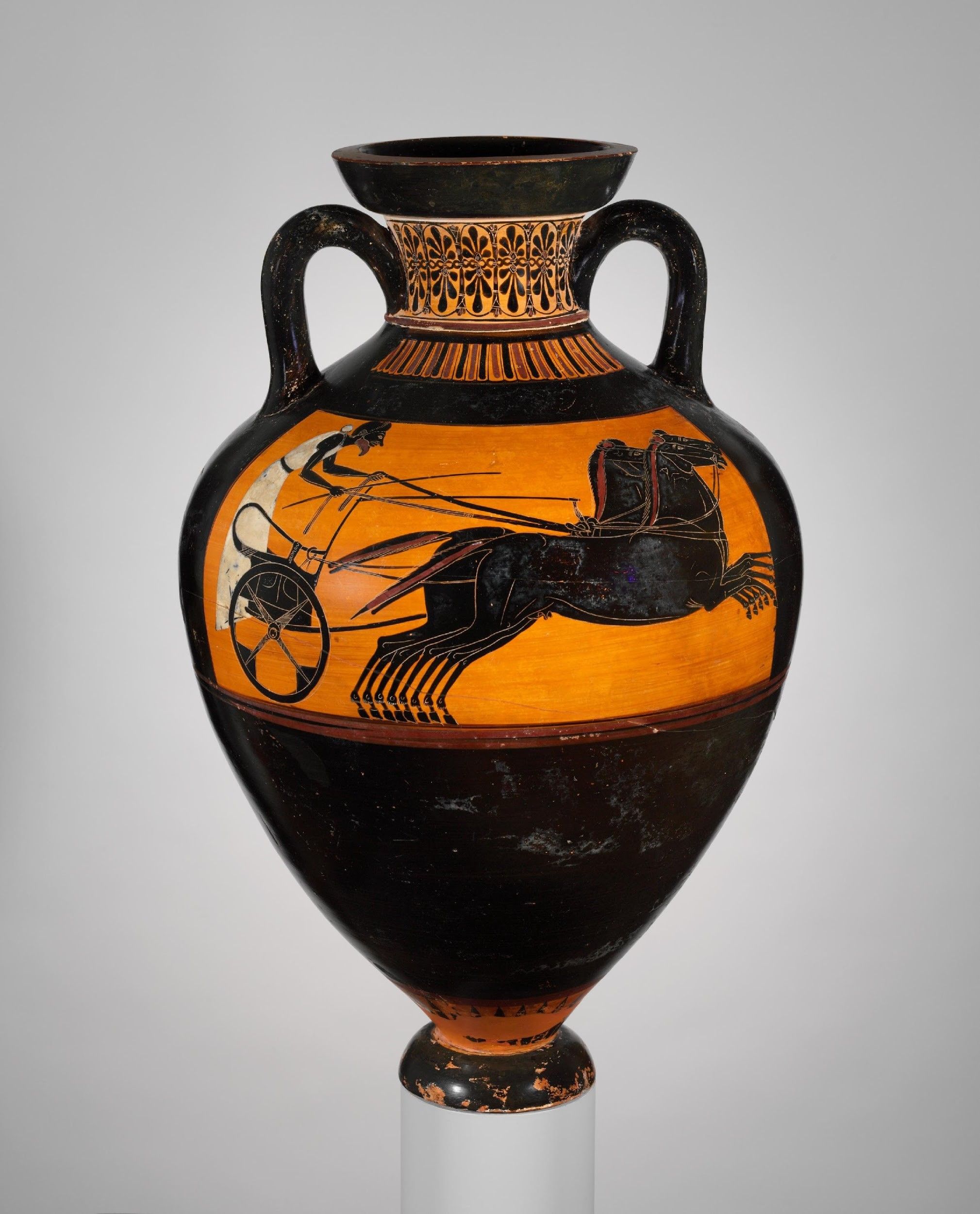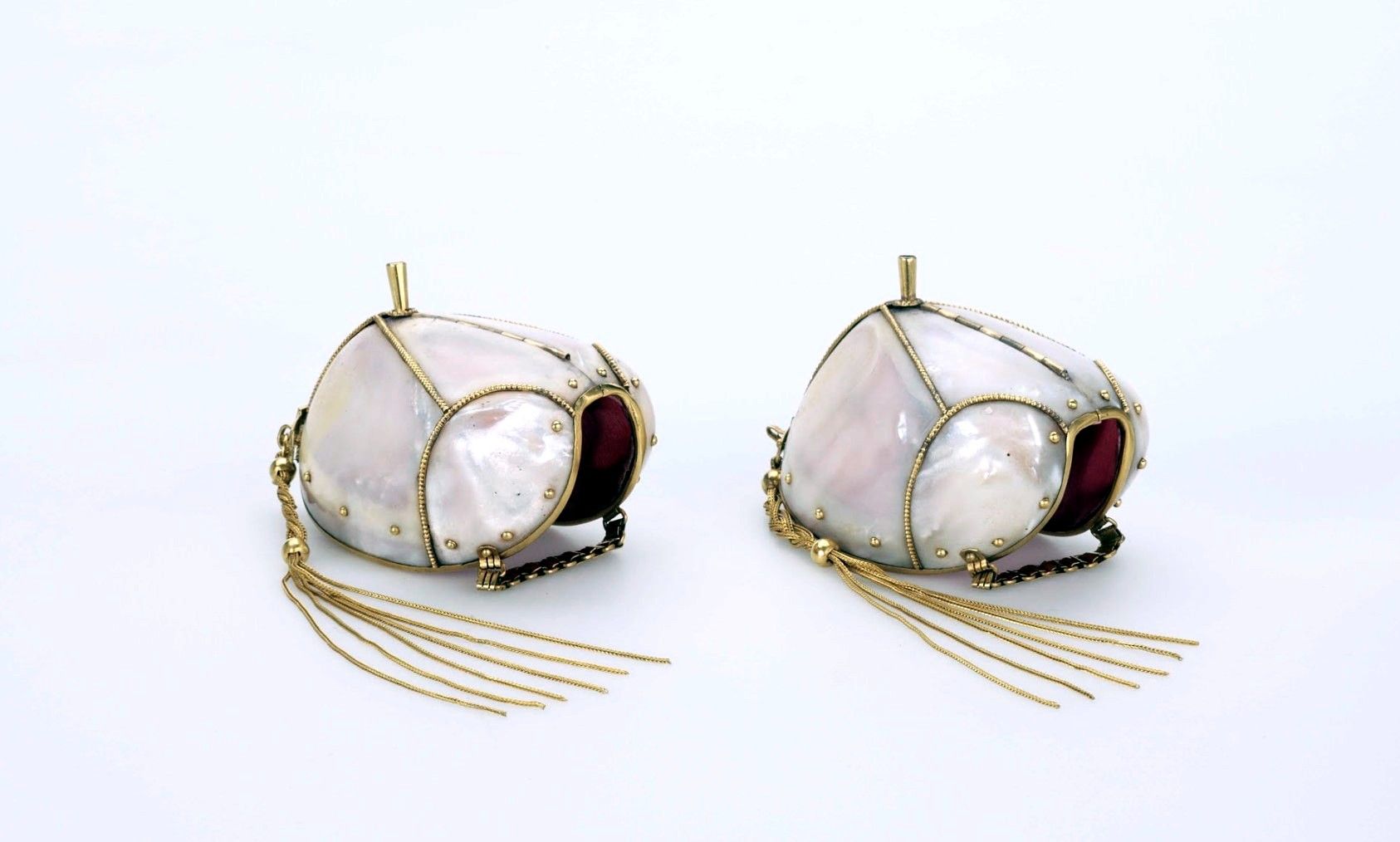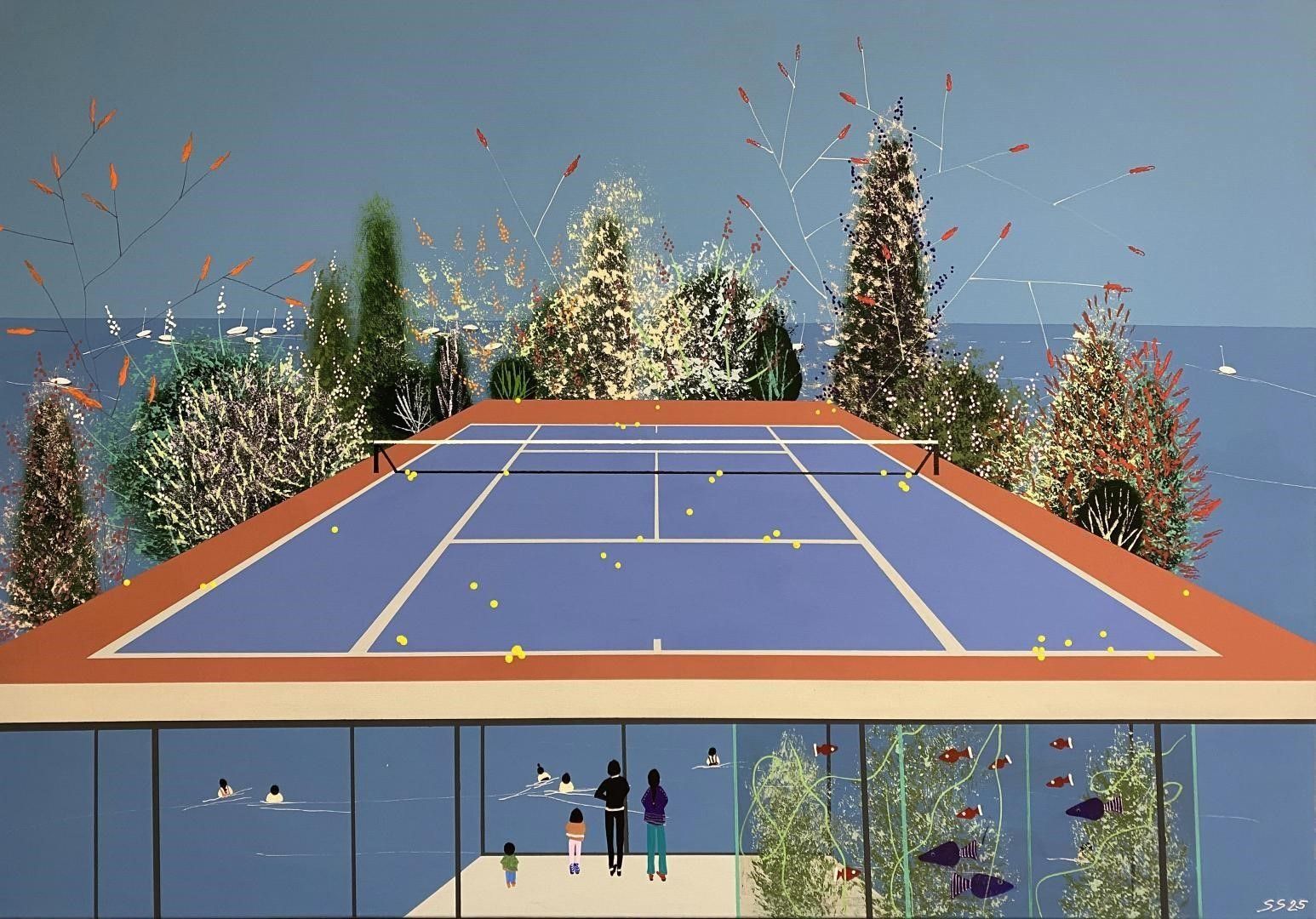When We Become Our Childhood Sports Heroes
Where the Art of Storytelling meets the Art of Sports: Captain Majid. The Japanese manga and anime Captain Tsubasa from the 1980s, better known across the Arab world as Captain Majid after it was dubbed, shaped the lives of several generations.
This is something many of today’s adults would say if they saw a football player do a bicycle kick — an acrobatic backflip type of kick — attributing it to a character that has inspired many children in the Arab world to play football— the animated Captain Majid.
In our 25th edition of Ithraeyat, we pay homage to the ‘Art of Sports,’ its universal appeal, and the importance of team spirit, as captured by our golden cover by the artist Ben Mosley.
Most of all, we pay homage to the defiant push of competitiveness that keeps us going each and every day.
There is no underestimating the art and influence of great storytelling, in this case that of the 1980s Japanese manga and anime Captain Tsubasa authored by Yoichi Takahashi, better known across the Arab world as Captain Majid after it was dubbed alongside a collection of Japanese series that have shaped the lives of several generations.
The anime transfixed a generation of children and made it their dream to be able to shoot and score like him — I was one of them. We, like many across the Arab world, set up boys and girls teams in our communities, inspired by this cartoon and a love for the beautiful game.
Truly, if you were an Arab child who lived in the Middle East and North Africa in the 1980s and 1990s, then you grew up and fell in love with the same Japanese animation as everyone else.
There were limited channels and even more limited content, with children waiting for the cartoons to come on during certain hours of the day. If anyone missed an episode, that was it!
Broadcast on local channels, they were the product of the GCC Joint Production Program Institution, set up in 1976 to make television programs for the region. One of the main reasons for its success was the pan-Arab push behind it, and how the right people worked on it.
It hired Kuwaiti, Iraqi and Syrian actors to dub more than 50 Japanese animations into Arabic. The dubbing gave several Arab voice talents their first break. For example, Syrian singer Asala sang the theme songs for the Hikayat Alameya (Universal Stories) series when she was a teenager.
Captain Majid’s voice that we all loved, this famous animated male character who inspired generations of Arabs, is actually that of a woman.
“People rarely call me by my real name, they call me Captain Majid or Mowgli!” Amal Hawijeh told me, the Syrian actress, writer and artist, who may be close to 60, but has kept her familiar soft and gentle childlike voice and contagious laugh.
The dubbing project also hired famous singers such as the legendary Lebanese crooner, Sammy Clark, who despite being a successful singer in his own right, will forever be remembered as the musical voice behind these animations, like the widely popular Grendizer (the story of a prince from another planet defending Earth against aliens) and Jazerat Al Kanz (based on the classic Treasure Island).
“I never imagined I would be remembered because of a cartoon about UFOs and robots,” he said as I sat with him and Jihad Al Atrash, the Arabic voice for the dreamy Daisuke (Duke Fleed), the main hero in Grendizer.
They picked the anime series that would appeal to our general values like honor and family, and at the same time, helped children improve their Arabic.
They have been revived on channels and streaming services as reruns or rebooted versions, but perhaps they won’t have quite the same impact that they had on the captive audiences of the past that had far fewer options, and hence would dedicate more time and focus to those few hours in the afternoon, as they waited for the show to continue.
Let us not forget how these animated series sowed the seeds of challenge and creativity in our hearts—just like the Arabic adaptation of the Korean anime Run Hani ( (The Fastest Lubna - Lubna AlSareea).
In it, a young girl, burdened by the loss of her mother, pushes against all odds and races her way to glory, claiming victory in her first championship.
Whatever the case, we remain ever grateful to the creative animated and written art for inspiring a sense of playfulness, healthy competition, and the beauty of teamwork, culminating in the very spirit of sport and its timeless grip over us.
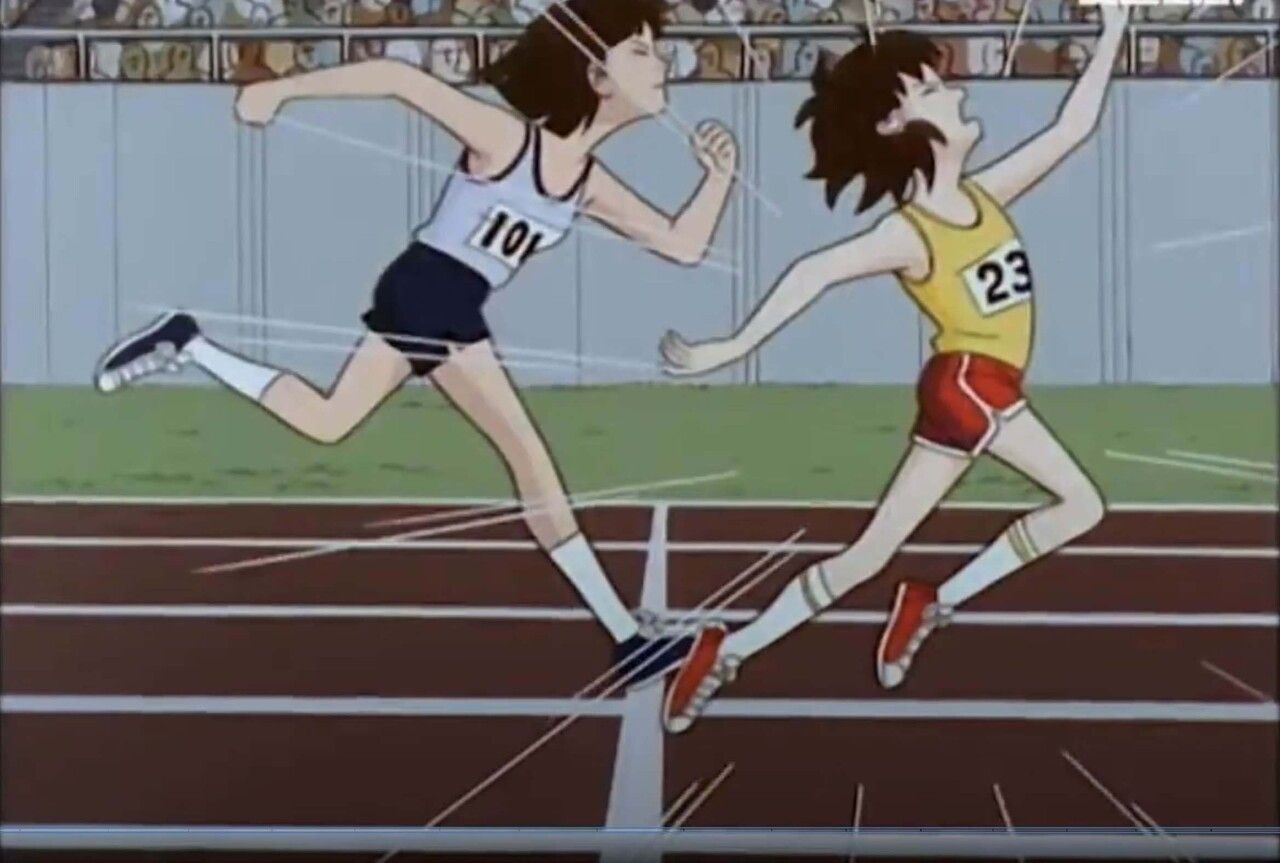
The final race where Hani won the champion cup, photo from the cartoon (Run Hani).
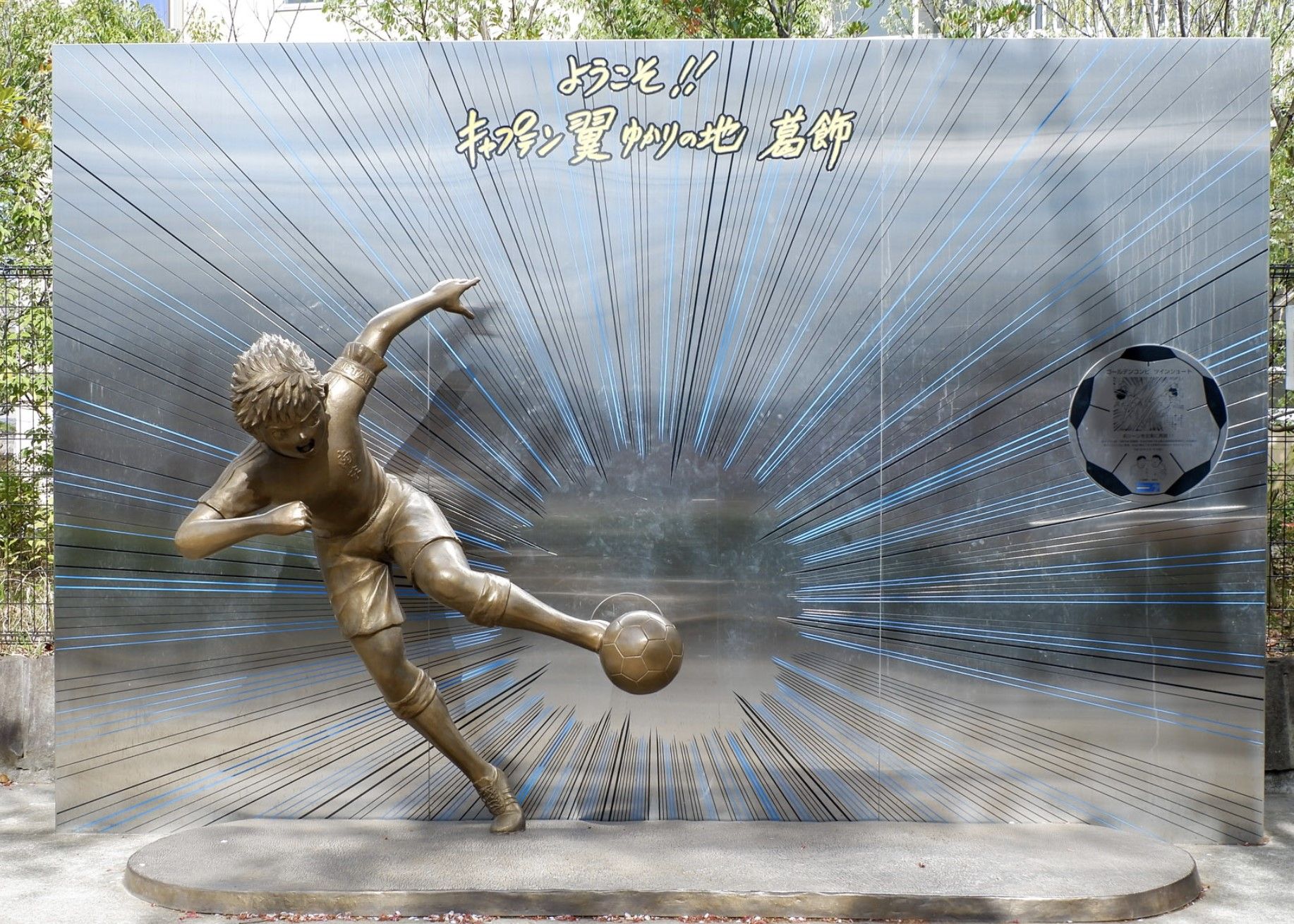
Captain Tsubasa is honored across Japan, with statues, galleries and museums, featuring elements from the manga and anime which caused a football boom in Japan and influenced many football players within Japan and globally. This captures how the language of football continues to mesmerize generations, as well as the impact of great storytelling behind the images. Source Kanpai.
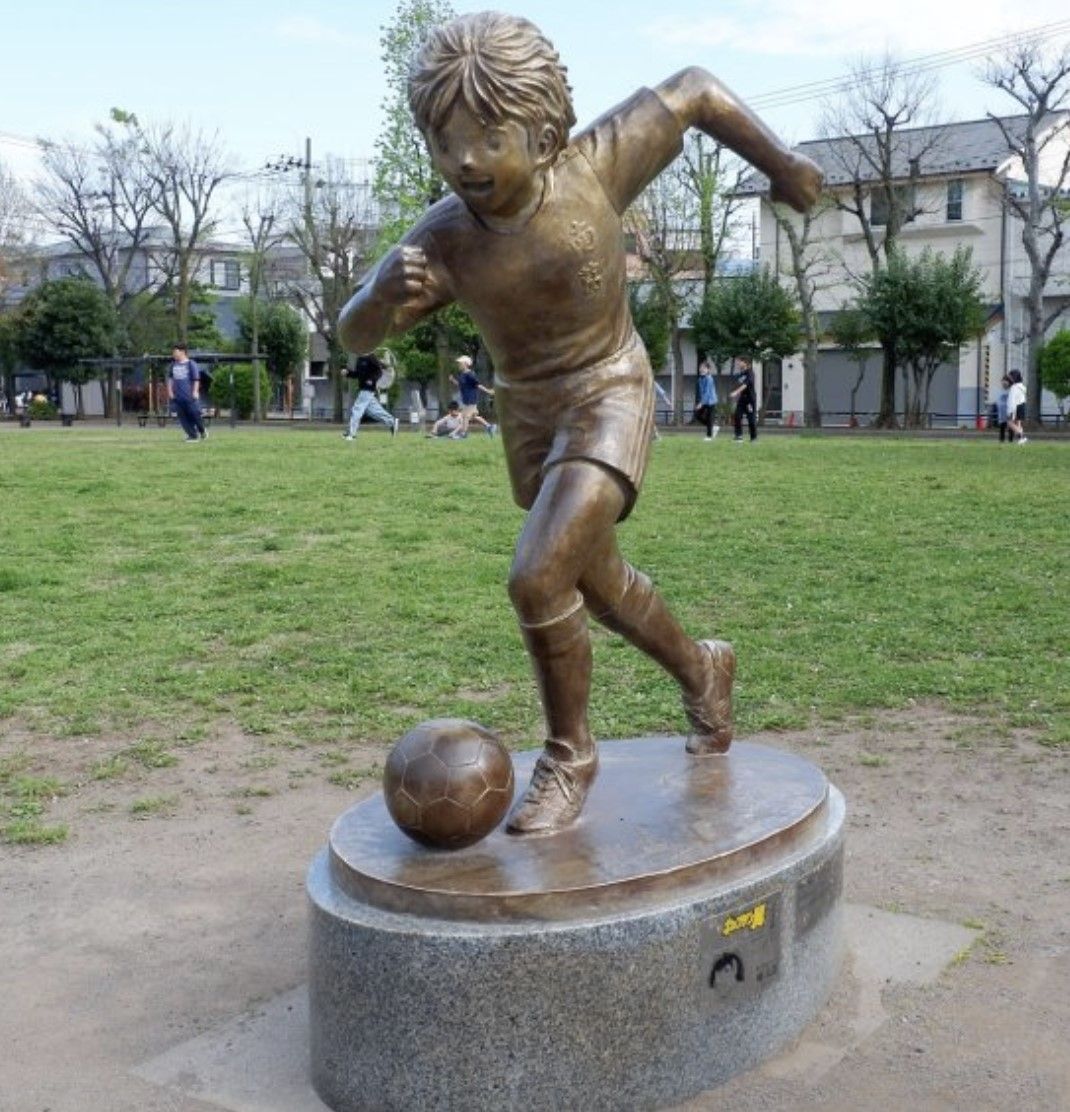
If you have a story to share about Captain Majid or any cartoon or book that has influenced your love of sports, please feel free to write Ithraeyat@Ithra.com
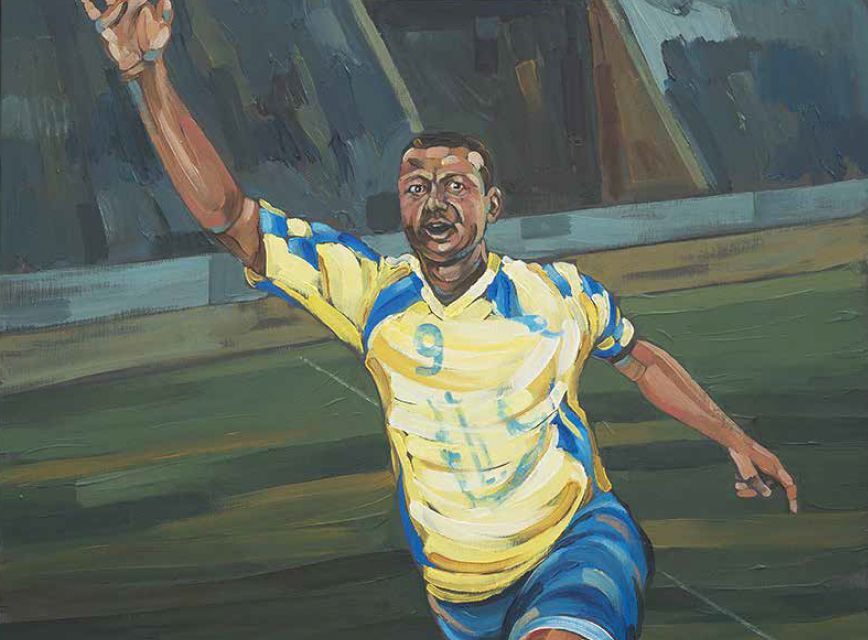
Majid Abdullah, a Saudi football legend as captured by the artistic talent of Jeddah based Syrian artist Monzer Charaby. This painting is one of many in the ‘The wall of legends’ collection at the home of art collector Abdullah Al-Rasheed.
Enjoy meeting an artistic version of another legendary football player named Majid — Captain Majid Abdullah.
Nicknamed ‘The Arabian Pelé,’ and ‘Al Sahm Al Multaheb’ (The Flaming Arrow), he was born in Jeddah in 1959, and graced the football fields of the world for more than 40 years with his club Al-Nassr and the Saudi national team as a striker. Recognized for his iconic number ‘9’ sports t-shirt, and best known for being the all-time leading goal scorer for his country, he still has many other milestones under his belt, including: being the first captain of the Saudi national team in the World Cup, winning the AFC Asian Cup more than once with the national team, and reaching the World Cup finals and advancing to round 16 for the first time in 1994.
